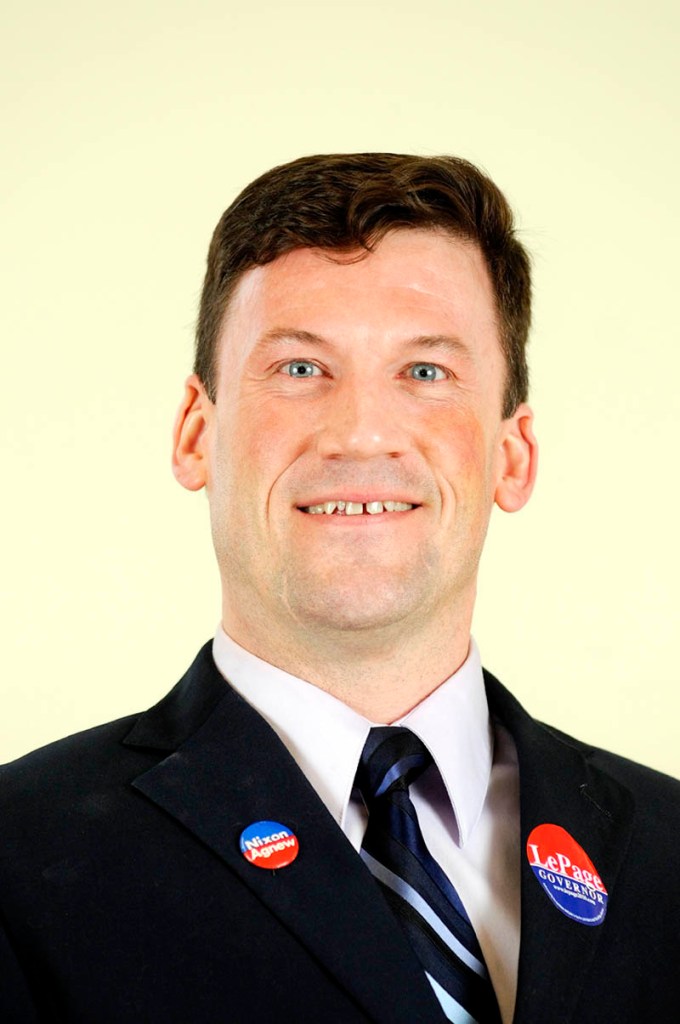AUGUSTA — Less than a week before voters go to the polls, House of Representatives Republican primary candidate Michael Hein pleaded not guilty in Augusta District Court on Wednesday to an attempted theft by deception charge.
Hein did not appear in court himself but had an attorney enter a not guilty plea on his behalf. The attorney, David Geller of Waterville, also requested a jury trial, which moves the case to Superior Court.
Hein, a candidate for House District 57, was summoned on the attempted theft by deception charge by the state attorney general’s office for allegedly falsifying documents and using his own money to try to qualify for public campaign financing through the Maine Clean Election Act. The district includes most of northwest Augusta.
Hein has said previously he planned stay in the race through the June 12 primary election and fight the charge.
Hein, contacted by email after Wednesday’s court session, said again he planned to continue his primary campaign, but wouldn’t comment further, referring questions to Geller, who could not be reached for comment.
Hein, 42, is vying with Andrew Worcester to be the Republican candidate for District 57. Worcester, who has not responded to multiple requests for comment in recent weeks on his candidacy, could not be reached for comment Wednesday.
The winner of the primary could face incumbent Democratic state Rep. Maeghan Maloney. Maloney, who is not opposed in the Democratic primary, has said she will run again, but she may be replaced as a candidate because she is also running for Kennebec County district attorney.
An investigation by Maine Ethics Commission staff found Hein falsified forms signifying that donors had given him $5 as part of his efforts to qualify for Clean Election money. Qualifying for Clean Election funds could have given Hein access to about $1,400 in public money for his campaign in the primary, and $3,900 in the general election.
The commission ultimately denied his request for public money. Hein said he would not appeal the commission’s decision that he did not get the 60 individual donations of $5 each required of House candidates to qualify for the money.
During a May 4 meeting with the ethics commission staff, Hein said some of the people he approached “did not have the personal means to make a $5 contribution.”
In a letter to Hein, Jonathan Wayne, executive director of the commission, said staff interviewed at least 13 people listed as donors who said they did not give Hein a $5 donation.
Wayne said commission staff contacted the listed donors because a member of the public phoned their office, saying he been asked to sign a form but was told by Hein they did not need to give him any money.
The form, Wayne wrote, “is intended to be a written acknowledgment by the individuals who signed the form that they used personal funds to make a contribution in support of your qualification to receive public campaign funds. The interviews show that, at your suggestion and request, at least 13 individuals signed (the forms) as ‘contributors’ even though they had not made a qualifying contribution.”
The letter says the 13 individuals were encouraged by Hein to make false acknowledgments on the forms by signing their names, and Hein later submitted the forms containing those false statements to the commission.
The criminal complaint by Detective James Gioia of the attorney general’s office against Hein said he “did intentionally create or reinforce the impression” that he received qualifying contributions from “the personal funds of 67 contributors,” but that impression was false and Hein did not believe it to be true.
Attempted theft by deception is a misdemeanor punishable by up to 364 days in jail and a $2,000 fine, according to state law.
Keith Edwards — 621-5647
kedwards@centralmaine.com
Send questions/comments to the editors.




Comments are no longer available on this story